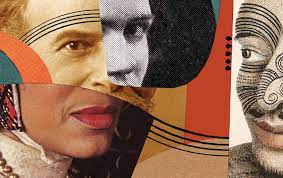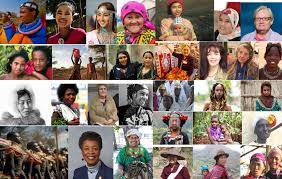Cultural anthropology is a fascinating field that delves into the study of human cultures and societies.
It seeks to understand the diversity of human behavior, beliefs, customs, and social structures across different societies and periods.
Cultural anthropology is the study of human cultures, societies, and behaviors across time and space.
It delves into the complexities of human diversity, examining everything from rituals and customs to language and social structures.
Through participant observation, ethnographic research, and cross-cultural comparisons, cultural anthropologists aim to understand the intricacies of human life and how societies shape and are shaped by individuals.
This field offers valuable insights into what it means to be human, fostering empathy, cultural sensitivity, and a deeper appreciation for the richness of human experience worldwide.
In the bustling realm of tourism, where wanderlust meets cultural exploration, lies a profound intersection
with the field of cultural anthropology. Beyond the mere pursuit of sightseeing and adventure, tourism
embodies a profound quest for understanding and connection with the diverse tapestry of human cultures across the globe.
At its core, cultural anthropology serves as a guiding light, illuminating the intricacies of these cultural encounters and shaping the way we experience and engage with destinations.
To see more tips click here: https://www.youtube.com/watch?v=RsCsQjpHMx0
Let’s explore the richness of human cultures, uncovering the intricacies that shape our identities and societies.
Understanding Cultural Anthropology
At its core, cultural anthropology is the study of human cultures and societies. It seeks to understand how people organize their lives, make sense of the world around them, and interact with one another.
From the Amazon rainforest to the bustling streets of Tokyo, cultural anthropologists venture into diverse corners of the globe to unravel the complexities of human behavior and social dynamics.
Key Concepts and Methods
One of the fundamental concepts in cultural anthropology is cultural relativism – the idea that each culture must be understood on its terms, without imposing external judgments or values. To achieve this understanding, anthropologists employ a variety of methods, including participant observation, ethnographic research, and cross-cultural comparison.
Participant observation involves immersing oneself in the culture being studied, often living among the community for an extended period.
This firsthand experience allows anthropologists to gain deep insights into the daily lives, rituals, and social interactions of the people they study.
Ethnographic research involves documenting these observations in written or visual form, creating a rich tapestry of cultural knowledge.
Cross-cultural comparison is another key method used by cultural anthropologists to identify patterns and similarities across different societies.
By examining how cultures vary in their beliefs, practices, and social structures, anthropologists can uncover universal aspects of human behavior as well as cultural variations.
Exploring Cultural Dynamics
Cultural anthropology delves into a wide range of topics, including kinship systems, religion, language,
symbolism, gender roles, and economic systems. By studying these cultural dynamics, anthropologists
gain insights into how societies are organized, how power is negotiated, and how identities are constructed.
Moreover, cultural anthropology sheds light on how cultures change over time and in response to external forces such as globalization, colonialism, and migration.
Anthropologists analyze how cultures adapt, resist, or transform in the face of these challenges, highlighting the resilience and creativity of human societies.
Implications and Applications
Beyond academic research, cultural anthropology has practical applications in fields such as development,
public health, education, and conflict resolution. Applied anthropologists work with communities to address
social issues, promote cultural understanding, and advocate for social justice.
One of the hallmark methods of cultural anthropology is participant observation, where researchers immerse themselves in the culture they are studying, often living among the community for an extended period.
This allows anthropologists to gain deep insights into the everyday.
Cultural anthropology plays a crucial role in the field of tourism by providing insights into the diverse cultures and societies that travelers encounter.
Understanding the customs, beliefs, and traditions of different communities helps tourism professionals develop more culturally sensitive and sustainable practices.


Cultural anthropologists can contribute by researching the impacts of tourism on local cultures, identifying opportunities for authentic cultural experiences, and advising on respectful ways to engage with host communities. By promoting cultural understanding and respect, cultural anthropology enhances the quality of tourism experiences while supporting the preservation and appreciation of cultural heritage around the world.
Unraveling the Threads of Human Diversity
Cultural anthropology stands as the beacon of knowledge in unraveling the rich tapestry of human diversity. Through rigorous research methodologies such as participant observation, ethnographic studies, and cross-cultural comparisons, anthropologists delve into the essence of what it means to be human in various societies.
They dissect the customs, rituals, languages, and social structures that define different cultures, offering profound insights into the intricate nuances of human existence.
Cultural Sensitivity in Tourism: Bridging Worlds
In the realm of tourism, cultural anthropology serves as a guiding principle for fostering meaningful and
respectful interactions between travelers and host communities. By understanding and respecting
local customs, traditions, and beliefs, tourism professionals can create authentic experiences that honor
the heritage and identity of each destination.
Cultural anthropologists play a pivotal role in advising on sustainable tourism practices, advocating for
responsible travel behavior, and mitigating the negative impacts of tourism on local cultures.
Preserving Cultural Heritage: Guardians of Authenticity
As custodians of cultural heritage, anthropologists advocate for the preservation and revitalization of
indigenous traditions and practices are threatened by the forces of globalization and mass tourism.
By documenting oral histories, safeguarding sacred sites, and promoting community-based tourism initiatives, cultural anthropologists contribute to the sustainable development of tourism destinations while
empowering local communities to preserve their cultural identity and heritage.
Empathy and Cultural Understanding: Transformative Journeys
At its essence, cultural anthropology instills a profound sense of empathy and cultural understanding
in travelers, transcending mere tourism to become transformative journeys of self-discovery and enlightenment.
By immersing oneself in the customs, languages, and everyday lives of diverse cultures, travelers gain
a deeper appreciation for the richness of human experience and forge meaningful connections with people
from all walks of life.
In the ever-evolving landscape of tourism, cultural anthropology serves as a guiding compass, navigating
travelers through the diverse tapestry of human cultures with empathy, respect, and understanding.
By embracing the principles of cultural anthropology, we can embark on journeys that transcend
mere tourism, transforming into profound voyages of cultural exploration and enlightenment.
Let’s continue our journey of exploration, curiosity, and discovery – for the wonders of
cultural anthropology is boundless and waiting to be unveiled.




